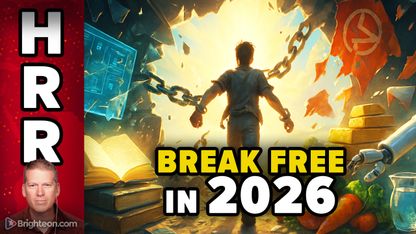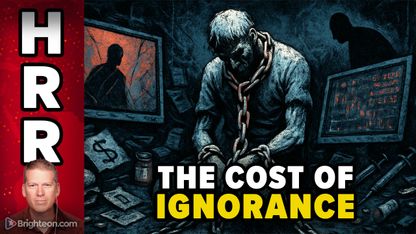
Speaking to CNBC, Johnson & Johnson CEO Alex Gorsky said that if new variants keep popping up, the COVID-19 vaccine may end up being more like the seasonal flu shot in the sense that it needs to be administered each year.
All of the COVID-19 vaccines on the market right now are relatively recent developments, and we have already seen new variants of the disease pop up in South Africa, the UK and Brazil since the vaccines were created, which means they may not afford the protection people expect.
Gorsky noted: “Every time it mutates, it's almost like another click of the dial, so to speak, where we can see another variant, another mutation that can have an impact on its ability to fend off antibodies or to have a different kind of response not only to a therapeutic but also to a vaccine.”
Other public health experts have said that they believe coronavirus will be an endemic disease that is always present within the population but hopefully circulating at lower rates.
Johnson & Johnson non-mRNA vaccine applies for emergency use authorization
Johnson & Johnson recently announced that they applied for an emergency use authorization for their coronavirus vaccine from the FDA. Their vaccine is different from the Moderna and Pfizer vaccines in the sense that it does not need to be shipped frozen and only one dose is needed. Moreover, it does not use mRNA technology. Instead, it combines genetic material taken from coronavirus with the genes of a virus that causes the common cold, adenovirus, to create an immune response.
Overall, the vaccine was found to be 66 percent effective at preventing moderate or severe COVID-19, according to studies involving 44,000 people. When it comes to the most serious symptoms, however, it was 85 percent protective, and researchers claim that no one who got the vaccine needed to be hospitalized or died.
However, it is important to note that the vaccine is said to be less effective against the more aggressive coronavirus strain that originated in South Africa.
The U.S. has agreed to buy 100 million doses of this vaccine for $1 billion and also has the option to buy a further 200 million doses. Gorsky told CNBC that they've ramped up their manufacturing capacity and that he was confident they would be able to deliver 100 million doses of the vaccine by the end of June.
Authorization for the vaccine could come as soon as this month. Gorsky told CNBC that the firm is working at “full speed” on manufacturing it and trying to accelerate production. They are also working on a two-dose vaccine; data from clinical trials on that shot is expected later this year.
It’s important not to buy into the hype surrounding these vaccines. We don’t know the long-term effects, we don’t know how much protection they provide, and they aren’t going to eliminate the need to use measures like social distancing and masks – so why take the risk?
Sources for this article include:
Please contact us for more information.






















